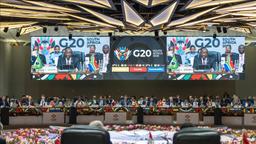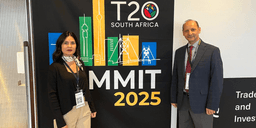
Director of TEPAV’s G20 Studies Center, Dr. Sait Akman, delivered speech at the event titled “COVID Crisis, Industrial Subsidies and the Way Forward”
TEPAV held a joint working session with Germany's Jena Friedrich Schiller University on Friday, October 1st, 2021, at a Public Forum meeting organized by the World Trade Organization (WTO). Of the current 21st Public Forum, this is the second time in its history that a Turkish organization has been accepted to host such a panel.
Experts and academics from international organizations, business and professional organizations and non-governmental organizations participated in the Public Forum, which was held under the main theme of Trade Beyond COVID-19: Building Resilience. Among the subthemes discussed at the four-days Public Forum were enhancing resilience of global trade beyond COVID-19; strengthening the multilateral trading system and collective action towards sustainable trade
More than a hundred sessions were held at the Public Forum over the course of four days from September 28th to October 1st, 2021. Before the World Trade Organization's 12th Ministerial Conference, presentations on WTO reform, sustainability, the environment, and the digital economy were made by numerous experts, academics, bureaucrats, and business people, bringing analysis and recommendations on the topics.
The panel, titled "COVID Crisis, Industrial Subsidies and the Way Forward" organized by TEPAV, discussed COVID’s impact on global trade, the effects of increased industrial subsidies (state aid) in trading system, and the regulatory steps to be taken at the WTO.
“COVID Crisis, Industrial Subsidies and the Way Forward”
The issue of subsidies has long been a topic of concern at the WTO. Due to the increasing geopolitical competition and the COVID-19 crisis, the number of state aids and governmental interventions made by countries in the context of industrial policy has increased considerably in recent years. The unfair competition and negative effects that these policies can create in trade are a cause for concern. The United States, the European Union and Japan have submitted important packages of proposals for the WTO Agreement on Subsidies and Countervailing Measures (SCM) that govern subsidies area. China calls these reform demands as "Chinese reform" and expresses its concerns. Furthermore, these proposals also demand addressing not only industry but also agricultural subsidies. This area of congestion between the parties is one of the most vital issues in the WTO reform process.
The TEPAV panel discussed how to prevent crisis related subsidies will not turn into permanent ones; what principles and methods should be employed in reforming the WTO's Subsidies Agreement (SCM); what institutional and political bottlenecks exist in reforming subsidies; and how to include concerns of developing countries in this area.
Dr. Sait Akman, Director of TEPAV’s Center for G20 Studies, gave an analysis of the basic approaches of WTO member states, explaining why the issue of subsidies is on the WTO reform agenda. Akman also expressed his views and suggestions on what principles and mechanisms should be discussed in upcoming negotiations.
To access the official website of the Panel Forum, click here.
For the program of the working session, click here.
To watch the panel discussion “COVID Crisis, Industrial Subsidies and the Way Forward”, click here.




